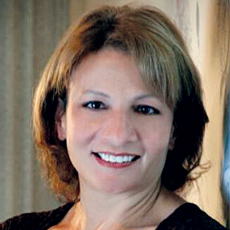
Last month, Florida Gov. Ron DeSantis (R) signed the controversial “Parental Rights in Education” bill, colloquially known as “Don’t Say Gay.”
It reads, “Classroom instruction by school personnel or third parties on sexual orientation or gender identity may not occur in kindergarten through grade 3 or in a manner that is not age-appropriate or developmentally appropriate for students in accordance with state standards.”
DeSantis said teaching kindergarten-aged kids that “they can be whatever they want to be” was wrong.
Let’s not discuss Mr. DeSantis’s disdain for science.
Instead, let’s discuss the imperative for care for the elderly LGBTQ patient. These are people who were not “indoctrinated” into their lifestyles. They were born this way.
Our elderly residents who identify as LGBTQ are frequently treated differently than those who are heteronormative and cis-gender.
I am reminded of a morning meeting I attended where the LNHA was directed to accept all patients in need, regardless of orientation. She stated, in front of 15 team members, “We will never take one of those.” We did, and her position was terminated.
Understanding and empathy are the keys to providing quality support at any age.
Maslow’s Hierarchy of Needs is reflected in a pyramid. From the bottom up, they are:
• Physiological (food, clothing, and shelter)
• Safety
• Friendship
• Esteem and autonomy
• Self-actualization
Physiological and safety needs, at the base of the pyramid, are the universal needs of all humans, regardless of their orientation. These are biological requirements for human survival, e.g. air, food, drink, shelter, clothing, warmth, sex, sleep. If these needs are not satisfied the human body cannot function optimally.
Maslow considered physiological needs the most important, as all the other needs become secondary until these needs are met. These are services we provide. We ensure that all our residents have what they need, including medication and healthcare, and it is our job to strive for the maximum effectiveness of this care.
The safety needs are protection from elements, security, order, law, stability, freedom from fear. These also are services we provide.
Maslow classified autonomy into two categories: (i) esteem for oneself (dignity, achievement, mastery, independence) and (ii) the desire for reputation or respect from others (e.g., status, prestige). These are services we provide.
The challenges faced by our elderly LGBTQ patients are deeper than for any other segment of society:
• Stigma
• Discrimination
• Violence
• Rejection by families and communities
• Inequality in the workplace
• Substandard care
• Outright denial of care
Other health challenges experienced at higher rates include chronic conditions, earlier onset of disabilities, HIV/AIDS, mental illness, substance use, and sexual/physical violence.
Nursing home care for people living with HIV has been a point of concern for years. An August 2019 survey found people with HIV are generally admitted into lower-quality nursing homes when compared to residents without HIV.
As LGBT senior advocacy group Openhouse says on its training site, “LGBT seniors have lived most of their lives knowing they could be put in jail or a mental institution just for being gay. They could lose jobs, friends, housing, family, and more if their sexual orientation or gender identity were revealed.”
The National Resource Center on LGBT Aging recommends asking all new clients about orientation, gender identity, and who they consider to be their family. Such a policy helps establish proper and preferred terms and avoids singling out presumed LGBT clients for such questions.
The Affordable Care Act clarified that discrimination based on sex stereotyping and gender identity is impermissible sex discrimination under the law. But Section 1557 has been challenged multiple times and ultimately is not enforced.
Though we speak of intersex as an inborn condition, intersex anatomy doesn’t always show up at birth. Sometimes a person isn’t found to have intersex anatomy until she or he reaches the age of puberty, or finds himself an infertile adult, or dies of old age and is autopsied. Some people live and die with intersex anatomy without anyone (including themselves) ever knowing. Google the Olympian Stella Walsh. Google Olympian Caster Semenya.
Likewise, it’s unfair to view transgender identity as triggered by the current social climate. Google We Wha in 1849; Albert Cashier, Civil War hero; Dora Richter, who was killed by Nazis; or musician Billy Tipton, who managed to marry five wives, without ever uncovering his female anatomy.
The range of sexual orientations and gender identities today’s seniors may claim is broad, but it’s not necessarily new. What’s different is providers’ modern ethical obligation to provide supportive care that affirms residents’ rights.
At the very least, it is our job to ensure safe and effective care for everyone, care that addresses physiology, safety and autonomy. It is our job to allow the resident’s “best friend” to visit, even though they’re not married. It is our job to ask residents how they want to be addressed. It is our job to counsel and educate our staff that every one of our residents deserves the optimum care, and that it’s our job to deliver it. Caring for people is our job.
Jean Wendland Porter, PT, CCI, WCC, CKTP, CDP, TWD is the regional director of therapy operations at Diversified Health Partners in Ohio.
The opinions expressed in McKnight’s Long-Term Care News guest submissions are the author’s and are not necessarily those of McKnight’s Long-Term Care News or its editors.





